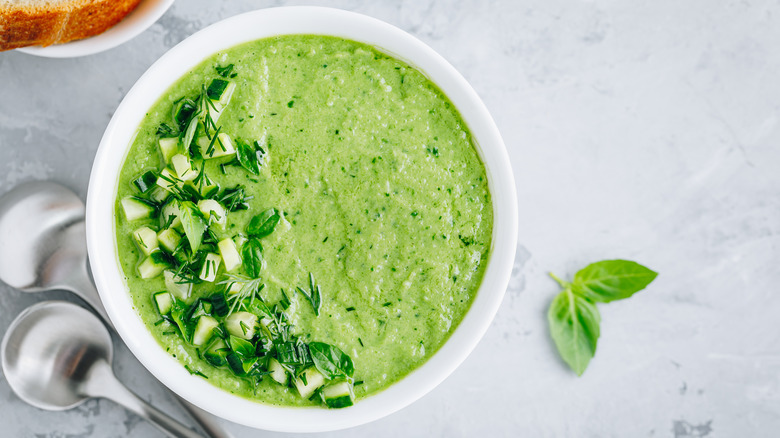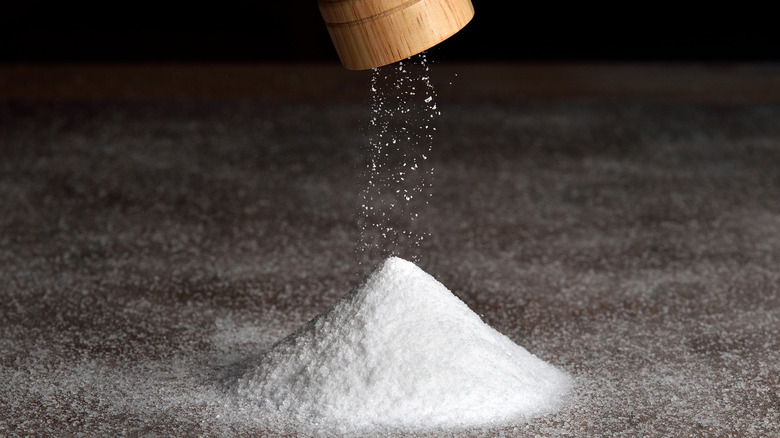Why Cold Foods Need To Be Seasoned Heavily
Seasoning is essential to cooking. It's what takes a dish from good to great. There's a reason you don't find a salt and pepper shaker on the table at fine dining restaurants — a good chef knows how to season to perfection. The overall "seasoning" umbrella encompasses spices, herbs, and anything else that enhances a food's flavor, with salt generally reigning supreme.
If you've ever enjoyed last night's leftovers straight from the fridge and bypassed the microwave, you may have noticed you're reaching for that salt shaker a little more often. Perhaps even with every bite. Or maybe you've found yourself preparing a batch of gazpacho or potato salad for a picnic, and the dish just seems to be sopping up the salt while still remaining on the bland side. Does the refrigerator dull the flavor of food? In a word, yes. But there's a little more to it than that.
Our taste buds don't register cold food as well
As famed chef Wolfgang Puck explained to MasterClass, "The palate really receives the flavors of cold food much slower and not as strongly than when you serve, for example, a hot bowl of soup." For this reason, Puck recommends heavier seasoning for cold food. This is because there are tiny channels in our taste buds, dubbed TPRM5, that open up more as the temperature of food increases. As a result, warmer foods send a stronger signal to our brains from our taste buds, resulting in an enhanced taste in our mouths. In other words, the higher the temperature of the food or liquid, the more we taste its flavors (via Nutrition and Food Sciences).
According to Science ABC, humans evolved to prefer hot food over cold food along with the discovery of fire two million years ago. Hot food is essentially predigested for us, requiring less energy and freeing up more of our time. Heating food also increases the availability of calories and nutrients, while also killing off any bacteria and the potential for foodborne illnesses. Thus, we evolved to prefer — and taste — hot food better than raw.
And what does salt do? It enhances flavors and makes food taste better. Per a study published in Nature in 1997, salt can make sweet foods taste sweeter and suppress bitterness on the palate. Given that cold food doesn't send as strong a signal to our brains as warm food does, adding more salt can help correct the flavor difference. And there you have it — a simple, salty solution.

